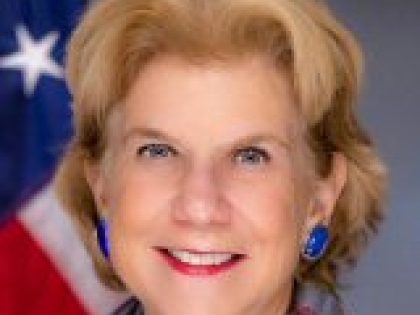
WRIC: Hochul talks students’ social media, cell phones at NYSUT conference
Johan Sheridan
September 22, 2024
ALBANY, N.Y. (NEXSTAR) — The 600,000-member-strong union NYSUT—which stands for New York State United Teachers—held a conference on September 20 to talk cellphones, social media, and education. The Disconnected conference in Albany included teachers, parents, officials, students, and advocates concerned with the impact such technology has on student well-being.
NYSUT said its polling shows that almost 80% of its members believe cell phones and social media negatively impact students, strongly supporting stricter policies on using devices during school hours. The conference will feature expert panels on social media overuse, model cellphone policies, and strategies to promote healthy tech habits.
Speakers Friday morning included New York Gov. Kathy Hochul and Assemblymember Shelley Mayer. Hochul kicked off the event just after 9 a.m. by talking about the challenge of supporting kids’ mental health after the pandemic, with many students still struggling to catch up socially and academically. Such struggles compound an ongoing mental health crisis, Hochul said, with the tech industry propping up social media platforms that damage kids.
Hochul said that statewide investments in school-based clinics and suicide prevention have failed to address social media using addictive algorithms on platforms riddled with scammers. She highlighted New York’s legislation aimed at breaking them free of constant distractions so they can connect with other people, learn, and grow.
“Our job is to raise adults, fully functioning adults who emerge from childhood with the social skills that they develop in school settings,” Hochul said while highlighting “first in the nation” local legislation meant to protect kids online. “They’re being denied that now because the cell phone has taken over human interaction.”
Following Hochul, Rep. Mayer drew a direct line connecting New York’s legislation to new policies from social media platforms. “This week, Meta took some steps—I think they see what’s coming. They see what’s coming. There is going to be federal legislation that is going to restrict what these social media companies can do to our kids under 18,” foretold Rep. Mayer, a Democrat representing Westchester County. “Our kids do come first, and we’re not going to make them subservient to the profit-making interests of these companies.”
She’s referring to Tuesday, September 17, when parent company Meta launched specialized Instagram accounts for teens. New automatic safety limits affect who can contact them and what they see. There are stronger privacy controls, messaging limits, sensitive content blocking, and daily time management reminders. Users under 16 need their parents to relax restrictions, and parents have more oversight, like seeing who their child messaged or blocking the platform altogether during certain hours.
Changes will roll out gradually, starting with the US, UK, Canada, and Australia, and expanding globally by next year. Reached for comment on Friday, a spokesperson from Meta told Nexstar, “We expect all teens in the US under 18 (13-17) to be placed in teen accounts in the next 60 days. We did this in response to feedback we’re hearing from parents.”
After the Instagram teen account announcement on Tuesday, Hochul released a joint statement with New York Attorney General Letitia James. They attributed Instagram’s changes to New York’s nation-leading SAFE for Kids Act. It regulates feeds and restricts late-night notifications for minors, limits Instagram is incorporating nationwide. They highlighted the ongoing issue of privacy and identity theft, which would be addressed at least by the federal Child Data Protection Act.
State Sen. Andrew Gounardes also responded to Instagram’s announcement, saying that its new safety features still fall short. He said that platforms should do more to minimize addictive content and stop collecting data. He warned that the government will step in if the social media industry doesn’t step up.
“Social media companies also need to make much better use of existing tools at their disposal to verify teen users’ ages to ensure any new safety measures actually work,” Sen. Gounardes said.
On September 4, the journal “Eating and Weight Disorders” published a study that adds another hurdle kids must overcome in the digital age. It found that spending too much time online made eating disorders more likely among children and teens. Research showed that more screen time, especially on social media, increased the risk of eating disorder symptoms like fear of weight gain, low self-worth tied to appearance, and unhealthy eating behaviors such as binge eating.
“Two point six million schoolchildren are relying on you,” said Kyle Belokopitsky, Executive Director of the New York Parent Teacher Association, to those assembled for the conference on Friday. “And 60% of them are in some level of food insecurity and 200,000 of them are homeless and 22, 23% of them have a disability. They are relying on us.”
Take a look at Hochul’s address at the Disconnected conference below:
Share this Article or Press Release
Newsroom
Go to NewsroomI-95 Upgrade: $86.7M Project Kicks Off in Westchester
August 17, 2025